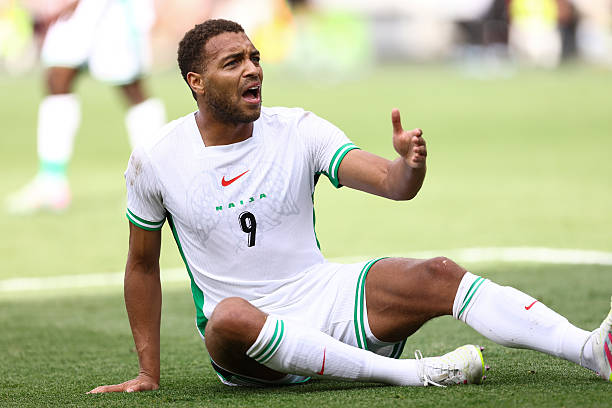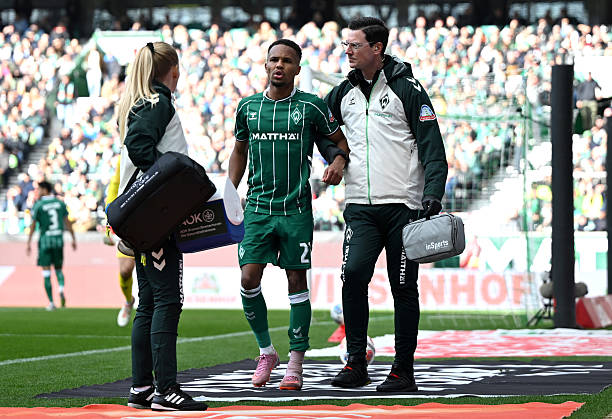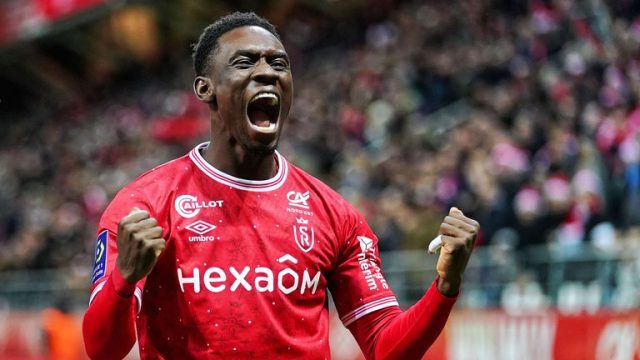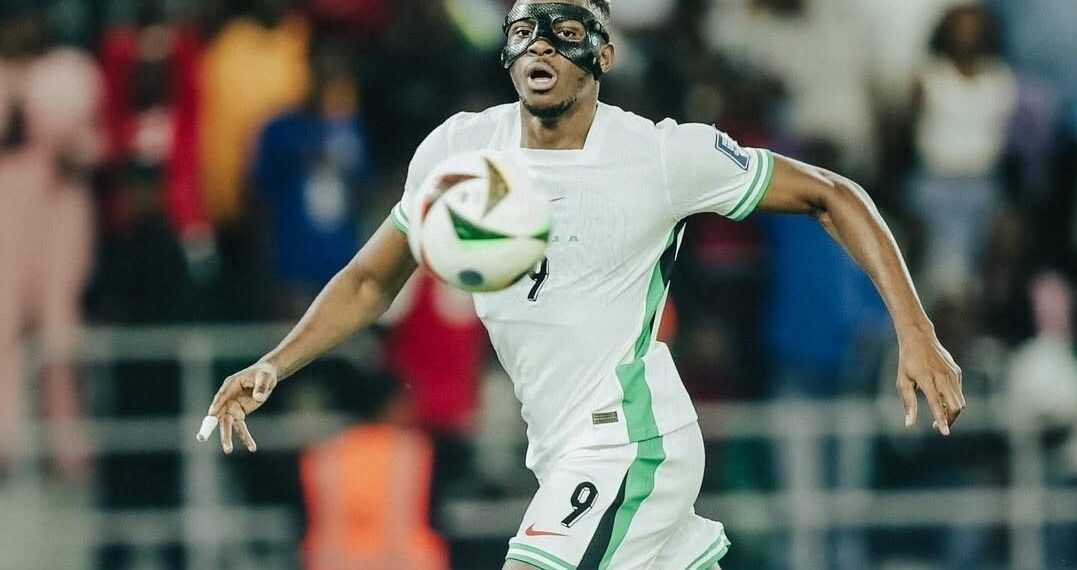In every corner of Nigeria, from the bustling streets of Lagos to the viewing centres of Kano and Port Harcourt, football fever is rising again. With Nigeria’s Super Eagles on the cusp of a decisive phase in their FIFA World Cup qualifying campaign, fans are gathering in homes, bars, and multiplexes, united in anticipation and anxiety over the fate of their beloved national team.
Yet there is an undercurrent of concern rippling through the Nigerian football community as news of fresh injury woes hit the squad’s preparations. With just days to go before the critical final two group matches, three pivotal players have reportedly sustained injuries, forcing changes to the squad and raising local and continental debate about the Super Eagles’ prospects on the road to 2026.
Currently sitting third in their qualification group with 11 points, the Super Eagles must navigate a tense double-header: facing Lesotho away on October 10, before returning home to contend with Benin Republic on October 14. With group leaders Benin and South Africa ahead by a slim three-point margin, these fixtures hold the key to Nigeria’s hopes of appearing at the next FIFA World Cup—a matter not just of sport but of national pride.
According to various sports news sources and statements from team officials, Super Eagles head coach Eric Chelle has had to overhaul plans for his initial 23-man roster. Injury has forced his hand, sidelining key names and opening the door for some familiar faces to possibly write new chapters in the squad’s story.
In a press release widely reported by Nigerian outlets and football analysts, it was confirmed that Zaidu Sanusi and Christantus Uche will join the team as replacements for the injured Bright Osayi-Samuel and Cyriel Dessers. These changes in personnel, while necessary, are being scrutinized by local analysts and supporters alike, who are keenly aware of the impact that such disruptions can bring at crucial junctures.

Sanusi’s return stands out as a significant move. Having been absent from the national setup for over a year, his presence is viewed by many as a timely reinforcement for Nigeria’s defensive ranks. Sanusi’s composure and tactical intelligence were central to Nigeria’s memorable run to the 2023 Africa Cup of Nations (AFCON) final, and his experience is expected to be invaluable against opponents eager to exploit any perceived weakness in the Super Eagles’ backline.
Meanwhile, Christantus Uche steps up to fill the void left by Cyriel Dessers, who, according to medical reports cited by team officials, is recuperating from an ankle injury. While Uche may not yet have Dessers’ international profile, local fans remember his strong performances in the Nigerian Professional Football League, and many see his call-up as both a challenge and a chance for him to shine on the big stage.
More worries surfaced as reports emerged over the weekend that Felix Agu, the right-back who has established himself as a versatile option in the squad, is now a major doubt for both upcoming matches. He was forced off the pitch with an ankle injury during his club’s last match. According to medical staff and club statements, his fitness will be monitored closely, but confidence in his participation remains low—a devastating prospect for a team already stretched for options.

Despite these setbacks, the Super Eagles still command respect across Africa and beyond for their attacking prowess. The squad boasts a formidable array of forwards and midfielders—including established names and emerging stars—who continue to deliver for club and country. Local football analysts, such as former international Daniel Amokachi, have argued that “it’s not just about individuals, but about the collective spirit. Nigeria has always thrived when adversity calls us to unite.” This resilience has often made the difference in tight qualifiers.
With Nigeria’s qualification hopes now hanging in the balance, the stakes could not be higher. In previous World Cup cycles, similar late-stage uncertainties have galvanized Nigerian squads to memorable comebacks, as seen in the run-up to the 2018 tournament in Russia. Yet the challenge is greater now, with margins tighter and competition fiercer. The group’s current standings see Benin Republic and South Africa holding the top spots, piling pressure on Nigeria to deliver back-to-back victories.
- Historical Data: Nigeria has qualified for six out of the last seven FIFA World Cups, underscoring the consistency and ambition of the nation’s football programme.
- Local Impact: World Cup qualification is more than a sporting achievement for Nigerians—it is a collective celebration that lifts national mood and showcases Nigerian talent to the world.
- West African Rivalry: Matches against neighbours Benin Republic and South Africa have historically carried added weight, with regional pride and bragging rights on the line.
As the Super Eagles regroup and train under the watchful eyes of Eric Chelle and his technical team, insider sources suggest a renewed emphasis on discipline and tactical flexibility during camp sessions. “These boys have faced hard times before and responded positively. Nigerians believe in this team, and the next week can be a turning point,” remarked Lagos-based journalist Femi Olaniyan in a recent radio interview.
Off the pitch, the mood across social media platforms, from X (formerly Twitter) to WhatsApp groups, is a mix of anxiety and hope. Hashtags like #SoarSuperEagles and #RoadTo2026 have trended locally, with fans debating squad selections, sharing messages of encouragement, and calling on the NFF (Nigeria Football Federation) to provide all necessary support. Commentators have also urged patience, reminding the football community that overcoming difficulty is integral to the country’s sporting DNA.
Internationally, Nigeria’s prospects continue to attract attention. Global sports outlets note that the continent’s giants—including Nigeria, Ghana, Senegal, and Ivory Coast—are facing stronger competition from emerging teams across Africa. Qualification for the expanded 2026 World Cup is expected to be more contested than ever, raising the stakes for every point won or lost in the group stages.
Looking at possible outcomes, analysts warn that failing to qualify would have repercussions beyond football, impacting sponsorship, youth development, and Nigeria’s standing in global football rankings. However, a successful qualification run could inspire the next generation of talent—male and female—across Nigeria and the wider West African region.
As the Super Eagles enter these decisive matches, much will depend on the depth of the squad and Chelle’s tactical decisions. The hope is that the team’s blend of experience, youthful exuberance, and trademark Nigerian passion will overcome these injury challenges and keep the World Cup dream alive.
With the eyes of millions fixed on the team and an entire nation’s pride at stake, Nigerians at home and abroad are waiting, watching, and believing.
What do you think—can the Super Eagles overcome their current injury setbacks and make it to the 2026 FIFA World Cup? Join the discussion by sharing your thoughts in the comments and keep following us for live updates and analysis.
For general support, reach out at support@nowahalazone.com.
Stay updated and join the conversation—follow us on Facebook, X (Twitter), and Instagram for more on the Super Eagles’ journey and other trending sports stories!










